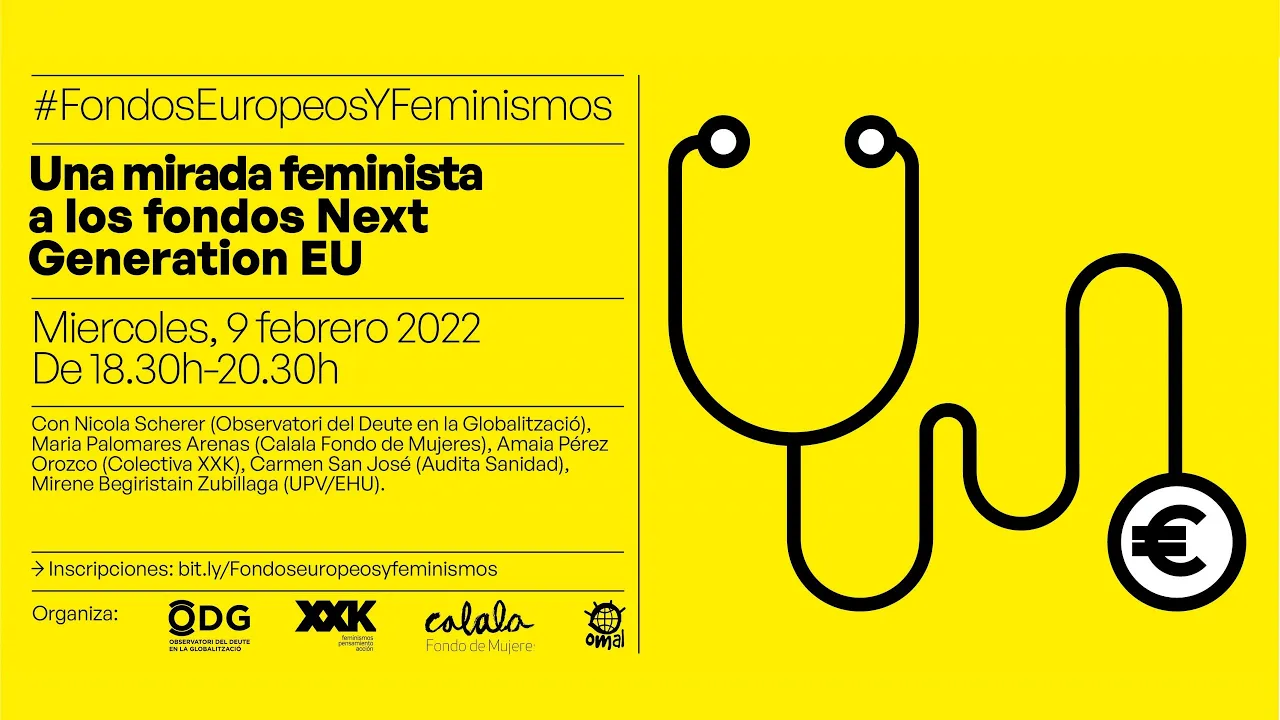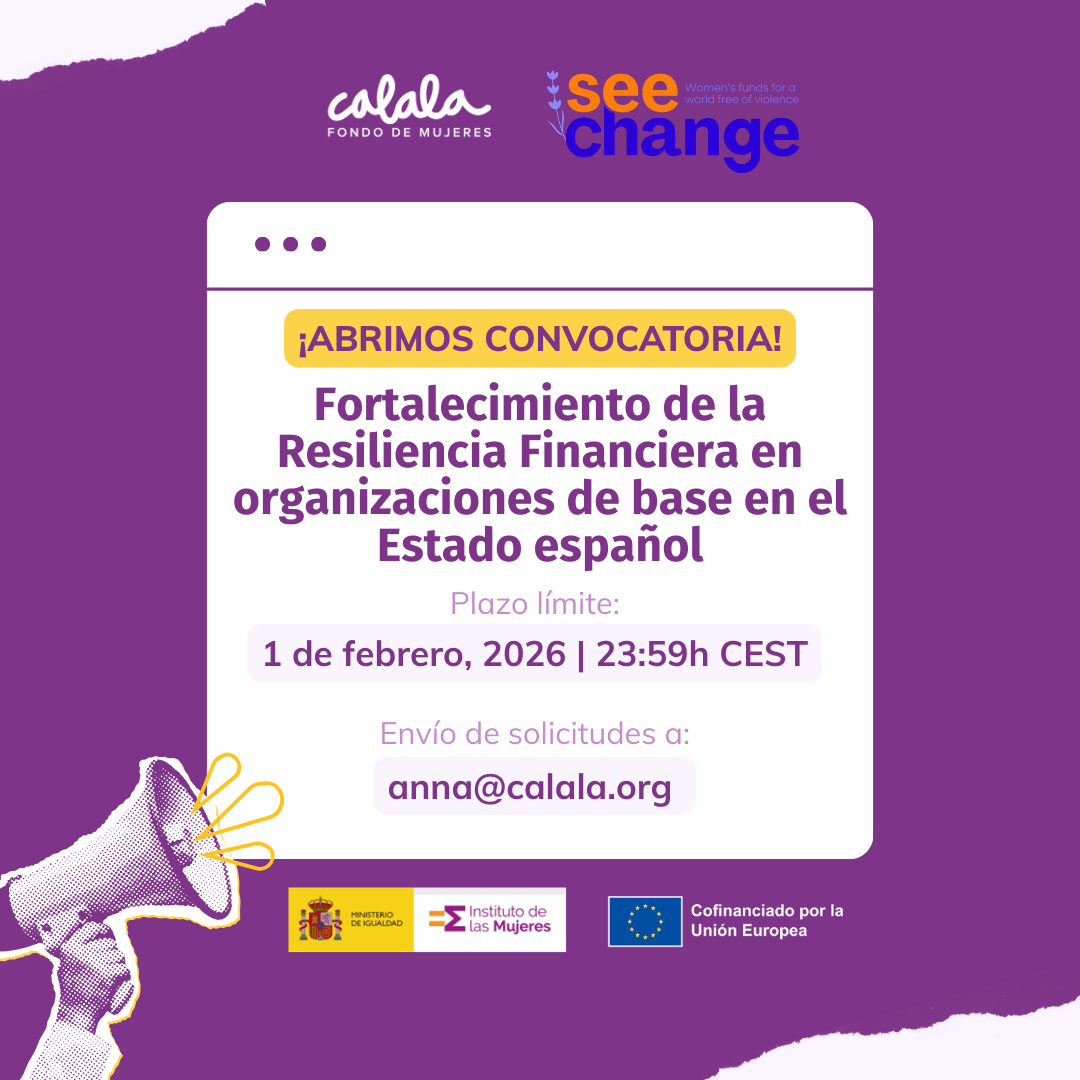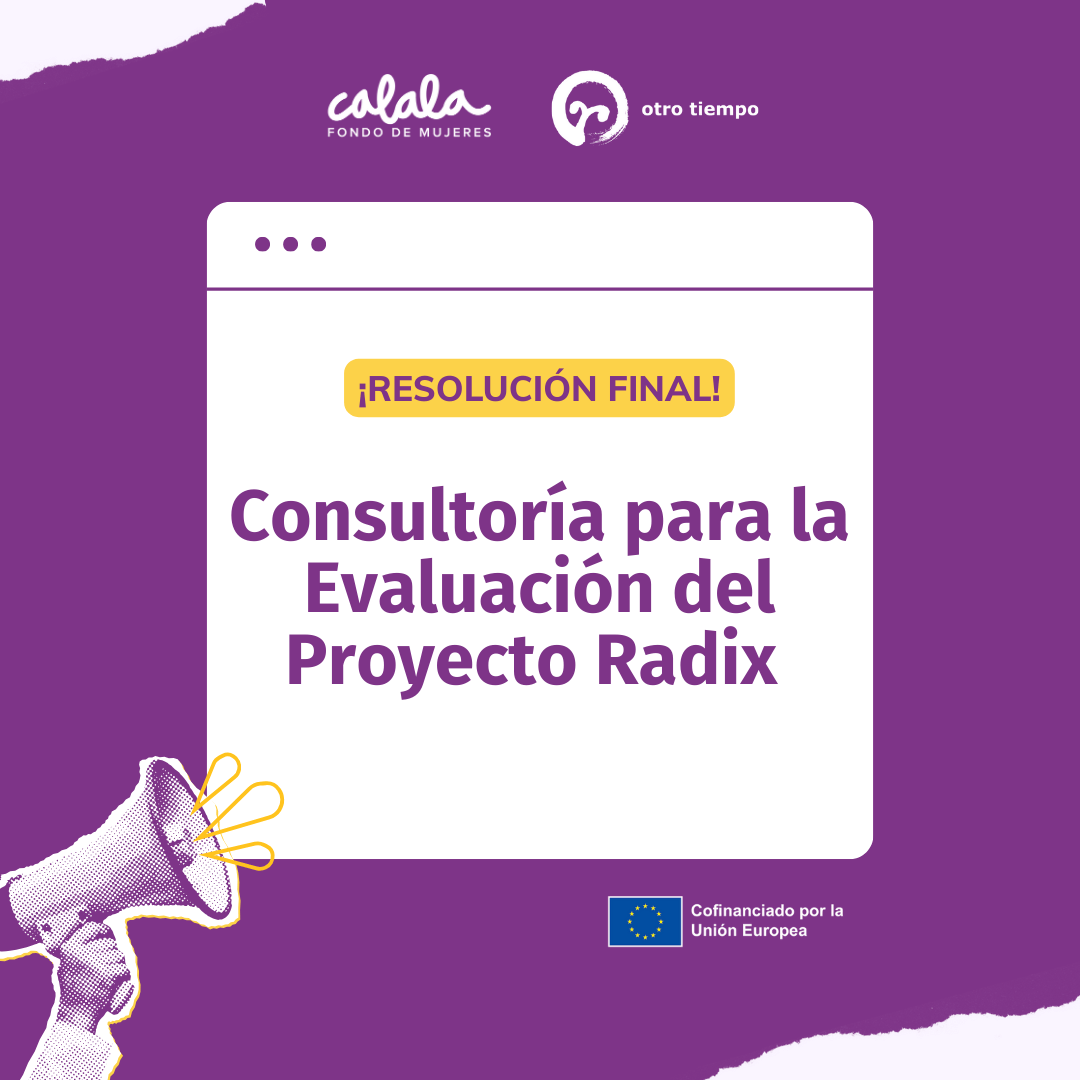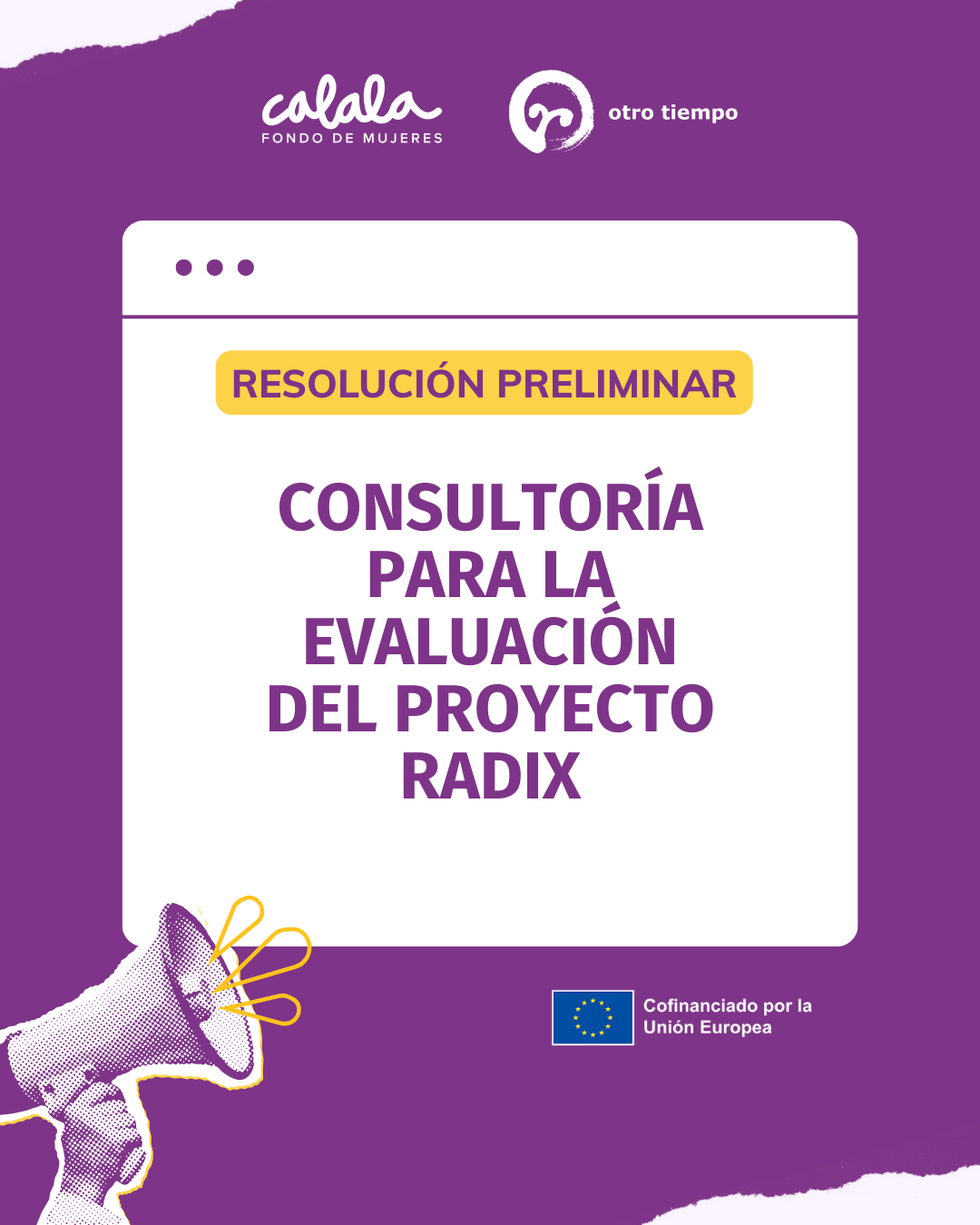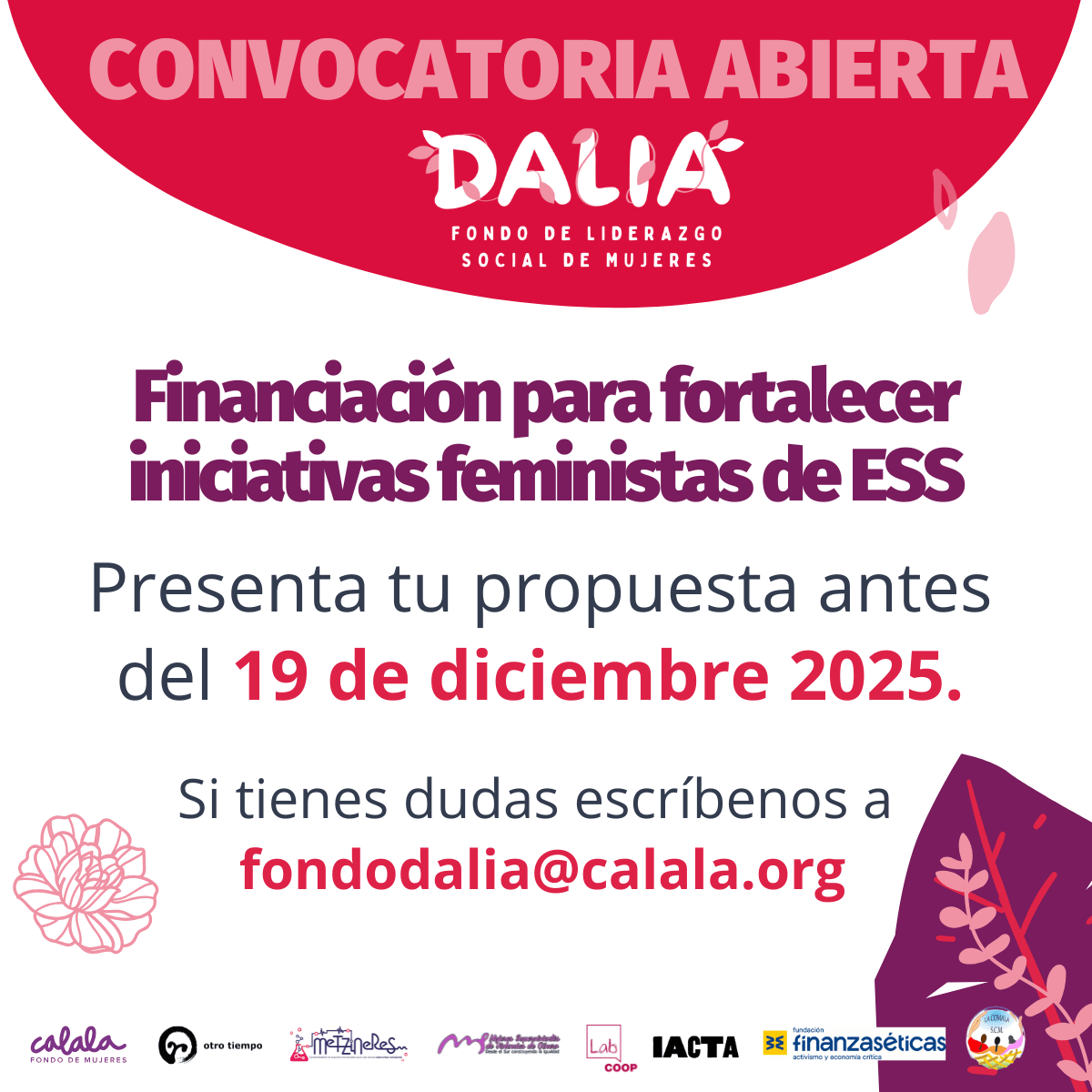The Next Generation EU funds will profoundly shape economic policy in the coming years. However, It has not really been analysed whether the application of these funds has been thought out from a feminist perspective, nor whether “there is life” beyond these funds. Could there be other alternatives or are we doomed to fight for them to be as feminist as possible, because “we have no other choice”?
It is important to clarify that these meetings are to critically analyse the Next Generation EU funds; not to explain how to access them. If you need this information, you can click here.
This series includes two webinars, held on 9 and 16 February. Click here to the recording of the first meeting.
[Webinar 1] A feminist look at Next Generation EU funds
In this first webinar We look at what the Next Generation EU (NGEU) funds are, how they work, what they entail as a whole and how they will affect key dimensions such as care, health, food, etc.
Programme
18:30 - 18:40 (10 mins) Welcome to the event and contextualisation. Moderator: Calala Fondo de Mujeres, Colectiva XXK and ODG
18:40 - 19:20 (40 mins) Block 1. What are NGEU funds, how are they developed and what are their implications?. Rapporteur:Nicola Scherer, of the Observatori del Deute en la Globalització (Debt in Globalisation Observatory)
19:20 - 20:05 (45 mins) Block 2. Sectors linked to feminism fund.
- Second Health PERTE
- Rapporteur: Carmen San José Pérez, of Audits Health (15 min)
- Component 22: Call for De-institutionalisation and direct support
- Rapporteur: María Palomares Arenas, of Calala Women’s Fund (15 min)
- Agri-food sector
- Rapporteur: Isabel Álvarez Vispo, of URGENCI (15 min)
20:05 - 20:30 (25 mins) Block 3. Space for debate. Moderator: Calala Fondo de Mujeres, Colectiva XXK and ODG
Participants
María Palomares Arenas, of Calala Women’s Fund
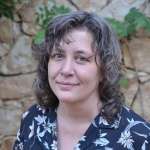 Executive Director of Calala Fondo de Mujeres since 2012. Graduate in Journalism, with postgraduate degrees in Gender and Development and Culture of Peace. She has worked in different non-governmental development cooperation organisations. Since she was 18 years old, she has been part of the feminist movement, participating in local organisations and international networks such as Women in Black. Currently in Calala she is committed to strengthening migrant women's social and solidarity economy organisations in Spain. She is a member of the steering committee of Fenomenal Funds, an initiative of private foundations to strengthen women's funds.
Executive Director of Calala Fondo de Mujeres since 2012. Graduate in Journalism, with postgraduate degrees in Gender and Development and Culture of Peace. She has worked in different non-governmental development cooperation organisations. Since she was 18 years old, she has been part of the feminist movement, participating in local organisations and international networks such as Women in Black. Currently in Calala she is committed to strengthening migrant women's social and solidarity economy organisations in Spain. She is a member of the steering committee of Fenomenal Funds, an initiative of private foundations to strengthen women's funds.
Nicola Scherer, of the Observatori del Deute en la Globalització (Debt in Globalisation Observatory)
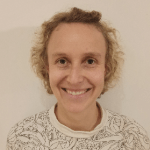 Researcher at the Observatori del Deute en la Globalitzación and mother of three children. She has a degree in economics, politics and international law. Her work focuses on the critical analysis of public economic and financial policies, proposing alternatives to reverse global economic, social and gender inequalities. She has written several publications and articles on the European NextGenerationEU funds, such as the “NextGenerationEU Fund".“NextGenerationEU Guide: more light than shade” i “The privatisation model of the NextGenerationEU European funds. Another step towards the commodification of public health care”. He was born in Germany and currently lives in Badalona.
Researcher at the Observatori del Deute en la Globalitzación and mother of three children. She has a degree in economics, politics and international law. Her work focuses on the critical analysis of public economic and financial policies, proposing alternatives to reverse global economic, social and gender inequalities. She has written several publications and articles on the European NextGenerationEU funds, such as the “NextGenerationEU Fund".“NextGenerationEU Guide: more light than shade” i “The privatisation model of the NextGenerationEU European funds. Another step towards the commodification of public health care”. He was born in Germany and currently lives in Badalona.
Carmen San José, of Audits Health
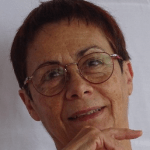 Graduate in Medicine and Surgery, specialising in Family and Community Medicine. She worked as a family doctor in various health centres in Madrid until her retirement in 2019. She has written numerous articles in magazines and newspapers, and is co-author of books such as “La Sanidad en la Comunidad de Madrid”. 2006. Ed. GPS. Madrid. “Expectations and Realities in Spanish Primary Care. Ed. GPS. Madrid. February 2010. Transforming suffering into struggle. An experience in times of pandemic. Ed Sylone Viento Sur. 2020. She also participates as a member of the Citizen Audit of the Health Debt (Audita Sanidad) and in various collectives in defence of public health in the State, such as the FADSP. She also collaborates in European and international spaces such as the European Network against the Privatisation and Commercialisation of Health and the People's Health Movement.
Graduate in Medicine and Surgery, specialising in Family and Community Medicine. She worked as a family doctor in various health centres in Madrid until her retirement in 2019. She has written numerous articles in magazines and newspapers, and is co-author of books such as “La Sanidad en la Comunidad de Madrid”. 2006. Ed. GPS. Madrid. “Expectations and Realities in Spanish Primary Care. Ed. GPS. Madrid. February 2010. Transforming suffering into struggle. An experience in times of pandemic. Ed Sylone Viento Sur. 2020. She also participates as a member of the Citizen Audit of the Health Debt (Audita Sanidad) and in various collectives in defence of public health in the State, such as the FADSP. She also collaborates in European and international spaces such as the European Network against the Privatisation and Commercialisation of Health and the People's Health Movement.
Isabel Álvarez Vispo, of URGENCI
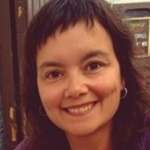 Granddaughter of peasant women, daughter of the emigration of cardboard suitcases and rebel by vocation. She is an educator and agro-ecologist by profession. She trained in Special Education, and then landed in the worlds of biodiversity, the rural environment and Agroecology. She has been working for 15 years in activism, training and research in agroecology and food sovereignty. As an activist, in Spain she shares struggles in the Baladre Coordination and on an international level she is part of the URGENCI Network (the International Network of Sustainable Agriculture for the Community) from where she works in the field of political advocacy in different spaces, including coordinating the Civil Society group on Food Systems and Nutrition in the Committee on World Food Security.
Granddaughter of peasant women, daughter of the emigration of cardboard suitcases and rebel by vocation. She is an educator and agro-ecologist by profession. She trained in Special Education, and then landed in the worlds of biodiversity, the rural environment and Agroecology. She has been working for 15 years in activism, training and research in agroecology and food sovereignty. As an activist, in Spain she shares struggles in the Baladre Coordination and on an international level she is part of the URGENCI Network (the International Network of Sustainable Agriculture for the Community) from where she works in the field of political advocacy in different spaces, including coordinating the Civil Society group on Food Systems and Nutrition in the Committee on World Food Security.
